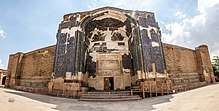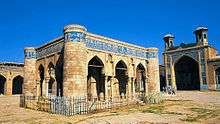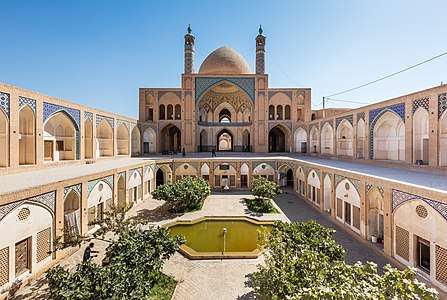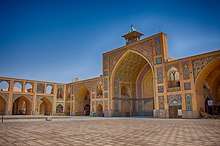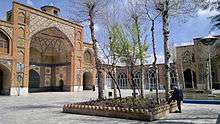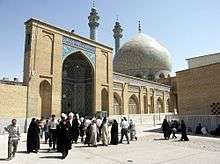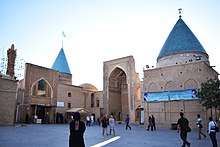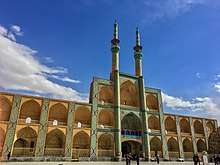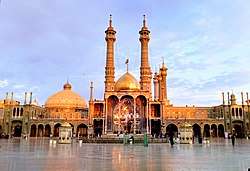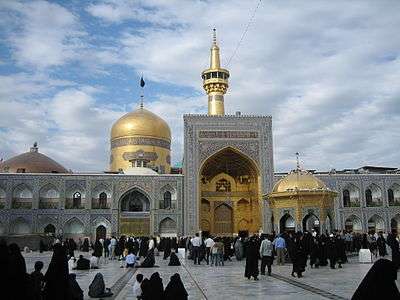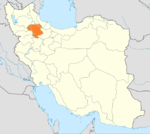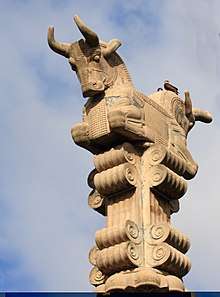Jameh Mosque of Zanjan
The Jāmeh Mosque of Zanjān (Persian: مسجد جامع زنجان – Masjid-e-Jāmeh Zanjān) also known as, Seyyed Mosque (Persian: مسجد سید, Masjid-e-Seyyed) and Sultani Mosque, is the grand, congregational mosque (Jāmeh) of Zanjān city, Iran. The mosque is situated in the old part of the city and was constructed in 1826 during the Qajar era.[1] The construction was carried out by Abdullah Mirza Dara who was one of the children of Fat'h ‘Alī Shāh Qājār.[1]
| Jāmeh Mosque of Zanjān | |
|---|---|
 مسجد جامع زنجان | |
| Religion | |
| Affiliation | Shia Islam |
| Province | Zanjān Province |
| Location | |
| Location | |
| Municipality | Zanjān County |
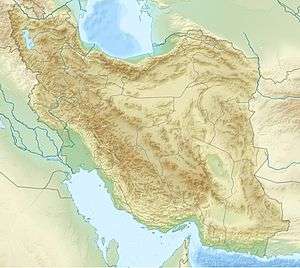 Shown within Iran | |
| Geographic coordinates | 36°40′5.32″N 48°28′55.74″E |
| Architecture | |
| Type | Mosque |
| Completed | 19th century |
Specifications
The mosque contains four iwans on the sides of a large open court. To the east and west of the court sixteen chambers exist running parallel to each other. Facing towards south are more chambers used as residential quarters for theology students. These chambers have vaulted and arched ceilings decorated with artistic tile work. The mosque has four Shabestans, or night prayer halls, each containing a minbar.
